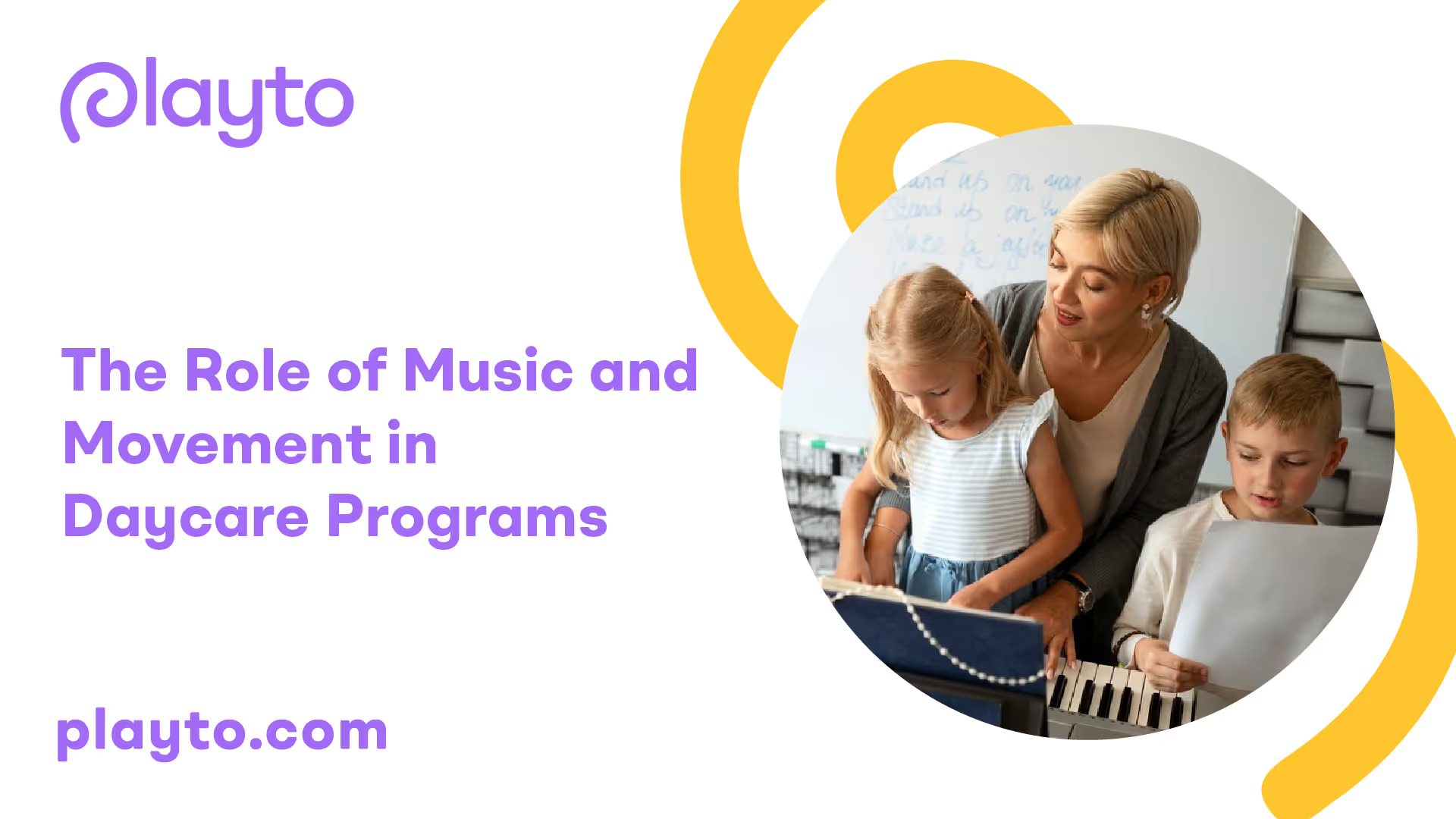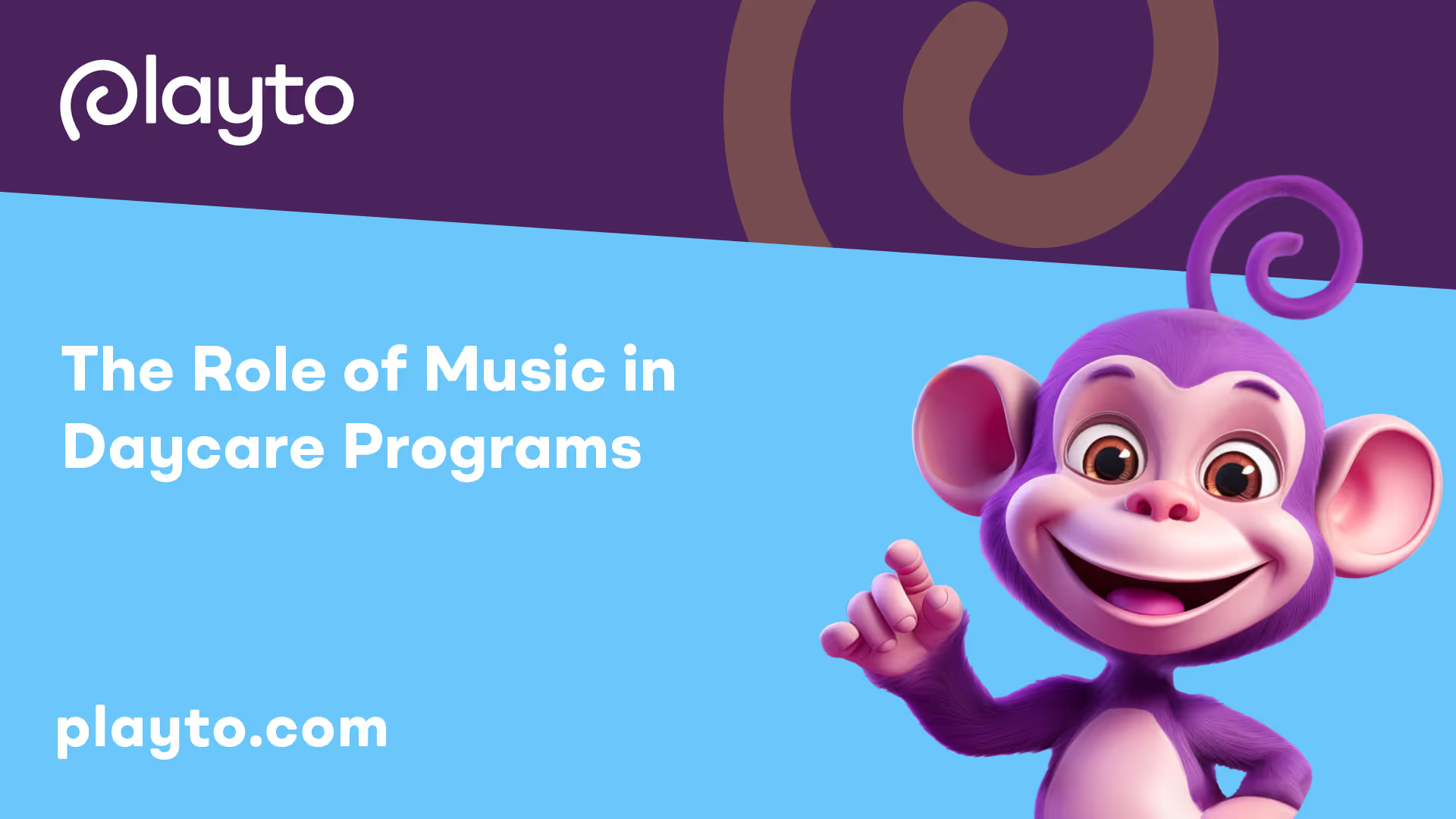The Impact of Music and Movement
When it comes to daycare programs, the inclusion of music and movement activities has a profound impact on children's development. Not only do these activities bring joy and excitement, but they also contribute to various aspects of their growth and well-being.

Cognitive Development Benefits
Exposure to music allows young brains to build neural pathways, especially in the corpus callosum, enhancing cognitive ability and problem-solving skills for a lifetime. Research has shown that music can accelerate brain development, particularly in the areas of language acquisition and reading skills in children. Learning to play an instrument can also improve mathematical learning and increase SAT scores.
Music interventions have indicated positive effects on a variety of skills, suggesting their potential to support educational processes and children's development. Music is said to influence motor, language, social, cognitive, and academic abilities. It provides a means of self-expression and enhances cognitive functions such as planning, working memory, inhibition, and flexibility.
Emotional and Social Development
Music and movement activities in daycare programs are not only fun but also serve as social activities that help children feel part of a group. As children grow in their appreciation of music and dance, they acquire a gift that brings them great pleasure and adds another dimension of beauty to their lives [4].
Engaging in shared movement activities with peers can lead to increased self-esteem, teamwork skills, and communication skills in children. Through music and movement, children learn to express themselves, cooperate with others, and develop a sense of belonging within a community.
Incorporating music and movement into daycare programs is essential for promoting holistic development. These activities not only stimulate cognitive growth but also nurture emotional and social skills, setting a strong foundation for a child's overall well-being and future success. To learn more about the role of music in daycare programs, visit our article on the role of music in daycare programs.
Music and Movement in Early Childhood
In early childhood, the combination of music and movement plays a significant role in the development of children. Through these activities, children not only have fun but also acquire essential skills that contribute to their overall growth and learning. In this section, we will explore two key benefits of music and movement in early childhood: problem-solving through movement and enhancing language skills.

Problem-Solving Through Movement
Movement provides children with the opportunity to engage in problem-solving activities. By participating in various movement challenges, children learn to think critically and creatively, developing problem-solving abilities. Movement problems, as highlighted by the NIU Child Development and Family Center, can help teachers and parents understand the problem-solving and creative abilities of children who may have less verbal communication skills.
Through movement, children connect concepts to actions and learn through trial and error. This process aids in the development of early mathematical skills such as understanding shapes, balance, symmetry, and more. As children navigate through movement challenges, they learn to adapt, persevere, and find solutions. These problem-solving skills acquired through movement extend beyond the activity itself and positively impact various areas of a child's development.
Enhancing Language Skills
Music and movement provide rich opportunities for children to enhance their language skills. Physical demonstration of action words and descriptive words during movement activities helps children comprehend and learn language in context. This, in turn, promotes emergent literacy and fosters a love for language.
As children engage in movement, they have the chance to explore and express themselves through nonverbal means. Music, as highlighted by the School of Rock, can help toddlers and young children develop their ear and ability to process fine distinctions in sound. This, in turn, fosters parallel play and cooperative skills. Children learn to listen, follow instructions, and engage in musical activities, which contribute to their overall language development.
By incorporating music and movement into early childhood programs, educators and caregivers create an environment that supports the holistic development of children. Through problem-solving experiences and enhanced language skills, children are provided with a solid foundation for future academic success and personal growth. The benefits of music and movement extend beyond the early years, influencing various aspects of a child's development and setting the stage for lifelong learning.
The Role of Music in Daycare Programs
Music plays a significant role in daycare programs, contributing to the overall development and well-being of children. It can set the mood for various activities and foster a sense of group connection among the children.

Setting the Mood with Music
In daycare programs, music is used to set the mood and create a positive environment for children. Whether it's singing or chanting, music can make routine activities and transitions smoother and more enjoyable. For example, quiet and calming music can help relax children, while lively tunes can energize them for activities like clean-up time. This creates a sense of structure and routine, making the daycare experience more engaging and fulfilling for the children.
Furthermore, music helps toddlers and young children develop their ear and ability to process fine distinctions in sound. This fosters parallel play and cooperative skills as children learn to listen and respond to one another's rhythms and melodies. By incorporating music into daycare programs, educators can help children build a strong foundation in social interaction and communication.
Fostering Group Connection
Music and movement activities in daycare programs promote a sense of group connection among children. As they engage in musical experiences together, children feel a sense of belonging and unity. This shared experience helps them develop social skills such as cooperation, collaboration, and teamwork. Music and movement activities provide opportunities for children to interact, express themselves, and appreciate the joy of making music as a group.
Participating in music programs during daycare and early childhood has long-lasting benefits. Teens who engage in music programs during high school show accelerated brain development, improved language skills, test-taking ability, and self-regulation. These positive effects on cognitive development and social skills are evident throughout their lives, contributing to their overall well-rounded development.
By integrating music into daycare programs, educators provide children with a platform for self-expression, creativity, and socialization. The role of music in daycare programs goes beyond entertainment; it enhances cognitive, emotional, and social development, creating a nurturing environment that supports the growth and well-being of children.
Movement Activities in Daycare
Incorporating movement activities into daycare programs offers numerous benefits for children's development. These activities help in developing cognitive skills and building self-confidence, laying a strong foundation for their overall growth and learning.
Developing Cognitive Skills
Movement plays a crucial role in the development of cognitive skills in young children. When children engage in movement-based activities, they connect concepts to action and learn through trial and error. This process aids in the development of early mathematical skills, such as understanding shapes, balance, symmetry, and spatial awareness. By actively exploring their environment and manipulating objects, children develop problem-solving skills and critical thinking abilities.
To support children's cognitive development, daycare programs can incorporate movement activities that involve problem-solving elements. For example, puzzles, obstacle courses, and scavenger hunts encourage children to think creatively and find solutions. These types of activities provide opportunities for children to apply their cognitive skills in a hands-on and engaging manner.
Building Self-Confidence
Engaging in movement activities not only benefits children's physical health, but it also helps build self-confidence. When children participate in movement-based games and activities, they develop a sense of mastery over their bodies and abilities. Through practice and repetition, they gain confidence in their physical skills and coordination.
Shared movement activities with peers provide additional benefits for self-confidence. Children learn to work as a team, cooperate, and communicate effectively. This collaborative aspect of movement activities fosters a sense of belonging and encourages positive social interactions [5]. Daycare programs can organize group movement activities such as dance, yoga, or group games that require cooperation and teamwork. These activities create a supportive environment where children can learn and grow together.
When planning movement activities in daycare programs, it's important to provide a variety of options that cater to different interests and abilities. This ensures that all children have the opportunity to participate and benefit from the cognitive and confidence-building aspects of movement-based learning.
By incorporating movement activities into daycare programs, educators can provide children with a holistic approach to learning. These activities not only contribute to the development of cognitive skills but also promote self-confidence and social interaction. Encouraging children to move, explore, and engage in physical activities helps them thrive both academically and socially.
Music and Brain Development
Music plays a significant role in the development of a child's brain. It has been found to have a profound impact on neural pathways, cognitive ability, and overall brain development. Let's explore the connection between music and brain development, specifically focusing on neural pathways and the widely known "Mozart effect."
Neural Pathways and Cognitive Ability
Exposure to music allows young brains to build neural pathways, particularly in the corpus callosum, which is responsible for connecting the left and right hemispheres of the brain. These neural connections enhance cognitive abilities and problem-solving skills that can benefit children throughout their lives. By engaging with music at an early age, children have the opportunity to develop essential cognitive skills that can extend beyond the realm of music.
Research has also shown that music can accelerate brain development, particularly in areas such as language acquisition and reading skills. Learning to play an instrument, for example, has been linked to improved mathematical learning and increased SAT scores. The rhythmic patterns and melodic structures in music stimulate the brain, fostering connections that support various aspects of cognitive development.
The Mozart Effect Revisited
In the 1990s, research suggested that listening to classical music, especially compositions by Mozart, could enhance cognitive abilities, leading to what is now known as "the Mozart effect." While the initial claims of increased intelligence were later debunked, studies continue to explore the impact of music on brain function and development.
While the Mozart effect may not directly increase intelligence, exposure to music, including Mozart's compositions, can still have positive effects on brain development. Music interventions have indicated positive effects on a variety of skills, including motor, language, social, cognitive, and academic abilities. Music provides a means of self-expression and enhances cognitive functions such as planning, working memory, inhibition, and flexibility.
As we delve into the role of music in daycare programs, it's important to understand how music can positively impact brain development and provide a solid foundation for a child's overall cognitive abilities.
Research on Music and Children
When it comes to daycare programs, the role of music and movement goes beyond mere entertainment. Research has shown that music plays a significant role in child development, particularly in terms of brain development and school readiness skills.
Effects on Brain Development
Exposure to music allows young brains to build neural pathways, especially in the corpus callosum, which enhances cognitive ability and problem-solving skills for a lifetime. The impact of music on brain development extends to language acquisition and reading skills. In fact, learning to play an instrument can improve mathematical learning and even increase SAT scores.
Even from birth, babies exhibit a natural inclination towards music. Exposure to music in early childhood can encourage language development and provide a soothing effect while stimulating the brain to work with the sounds that serve as the foundation of language.
Promoting School Readiness Skills
In addition to its impact on brain development, music interventions have been found to promote a positive approach to learning. While no significant effects were observed in promoting academic skills, music programs have been shown to enhance school readiness skills in preschool children. Music ignites various areas of child development and skills necessary for school readiness, including intellectual, social-emotional, motor, language, and overall literacy. It strengthens memory skills and brings joy, helping the body and mind work together.
By incorporating music into daycare programs, children are provided with a well-rounded learning experience that extends beyond traditional academic skills. Music not only stimulates their brains but also fosters creativity, emotional expression, and social interaction. It plays a crucial role in preparing children for future academic success and overall development.
To learn more about the impact of music and movement in daycare programs, explore our articles on the role of music in daycare programs, the role of physical activity in daycare programs, the role of pretend play in daycare settings, and the role of dramatic play in daycare settings.
